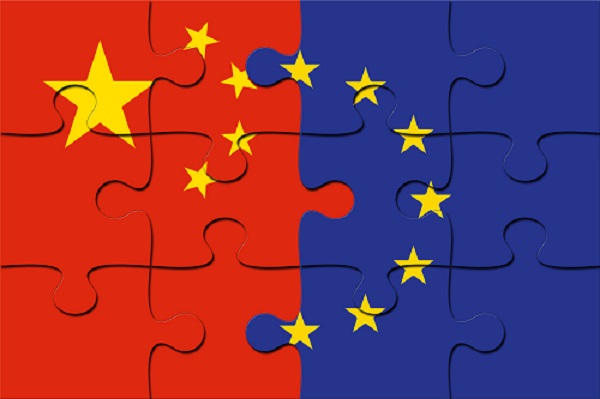Priyanka Madia, Research Intern, ICS

Western Balkans is one of the significant regions in southeastern Europe, which has been waiting to be a part of the European Union (EU) for a long time. Comprising six countries, namely, Albania, Bosnia, Herzegovina, Kosovo, Montenegro, North Macedonia, and Serbia, together they constitute the south-western arc of Europe. They are among the lesser developed of the European countries but are aspirants for membership of the EU. For China, the region is significant as a gateway to Europe because of their geographical positions and the lower developmental levels, which makes them particularly susceptible to Chinese offers of investment, credits, and trade. This makes the Western Balkans an essential component of China’s ambitious Belt and Road Initiative (BRI).
The focus of BRI has been towards developing connectivity corridors across Eurasia. The land corridor or the Belt, in the shape of highways, railroads, pipelines, and digital networks, intend connecting China’s manufacturing and logistics bases like Chongqing(Sichuan) to Duisburg (Germany). Also, Hungary has emerged as a key logistics base for Chinese companies. At the European end of the Belt, China has invested heavily in acquiring significant ports such as Piraeus in Greece, which are also a terminus for the Road or the maritime routes from China.
The Greek economic crisis gave a golden opportunity to China to establish itself at the port of Piraeus. COSCO, the Chinese state-owned company, has been operating the Greek container port since 2008. In 2017, it acquired 67% of its shares. In view of the strained financial conditions of the Western Balkan countries, which are being exacerbated by the impact of COVID-19, China is in a position to establish its dominance in these countries quite easily, with little support forthcoming from the EU or the U.S. While these countries are not yet members of the EU, they are less constrained in accepting Chinese FDI or credits. This is the reason why the EU is especially apprehensive of the China-CEE or 17+1 Forum, which Greece has joined recently. Several EU members participate in the Forum along with non-member countries, including those from the Western Balkans. The Forum has become a significant instrument to advance Chinese influence in Europe to the detriment of the EU.
Chinese penetration in Western Balkans is being achieved through an array of instruments such as FDI, government-to-government credits, outright grants, favorable trade deals, etc. Despite remaining outside of the EU, the region attracted 147 greenfield FDI projects in 2018, the highest number of investments for six years. Serbia accounted for the lion’s share (70%) of Western Balkan’s greenfield projects in 2018, Bosnia-Herzegovina accounted for 11.6%, despite attracting four fewer greenfield projects than in 2017, according to fDi Markets. On the other hand, Montenegro performed well in 2018, attracting a record 11 greenfield FDI projects. According to the latest annual FDI Markets statistics, Albania and North Macedonia received $184.4 million and $809.9 million of inbound greenfield funds, respectively, as the number of inbound greenfield projects grew by 200% and 80% compared to the same duration a year before.
Soft-power diplomacy such as the setting up of Confucius Institutes, scholarships, and people-to-people exchanges also play an imperative role in terms of penetrating Western Balkans. Under Confucius Institutes, there are higher educational institutes set up in southeast Europe. These institutions host Chinese cultural programs, provide Chinese language, culture, and also host Chinese political, social, and economy-related seminars. Confucius Institutes are operated by the Han Ban, a part of China’s Ministry of Education. Over 10,000 students are currently studying the Chinese language in respective countries of the western Balkan region. Cultural centers set up by the Chinese government are also a vital step to maintain cultural diplomacy.
Another critical component of China’s soft power diplomacy is tourism. Visa liberalization and simplification has attracted a lot of tourist from China and undoubtedly lead to the flourishing of tourism industries in Western Balkans countries. China is also gaining additional credit through its assistance to these countries in their fight against the COVID-19.
The Western Balkans are a congenial target for China’s Eurasian diplomacy and offer them a south-western entry point to Europe. Chinese have been able to identify and understand the regions which are not catching up well with their economy and having infrastructural issues; perhaps China has addressed those regions with a structural solution. Studying China’s involvement in Western Balkans gives an outlook that China is filling the gap which the European Union (EU) has not been able to address. The position of the EU here is being undermined by aggressive Chinese diplomacy, mainly through the BRI.
A geo-economic and political logic drives China’s increased engagement in the Western Balkans. Her main motive could be to use the Western Balkans as a commercial platform for Western Europe, as Beijing is eager to search for markets. While the EU remains preoccupied with its fight against the pandemic and is beset by continuing threat of fragmentation, the COVID-19 pandemic may offer even more opportunities for consolidation of Chinese influence in Western Balkans.
A fine analysis, Priyanka. Well-crafted too. China’s actions in the Balkans pose two problems for the aid recipients. First, in a country such as Serbia, questions have come up locally over their capacity to repay the loans. Covid-19, which no one anticipated, further erodes their repayment capacity. Second, at some places project costs have been inflated, as for instance in Hungary, where newspapers have observed that the country’s flat terrain does not warrant the announced cost of a new railway line. Such implied corruption will also hurt repayments. This suggests that China may have to take a sizable haircut on the loans.